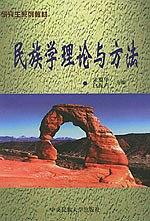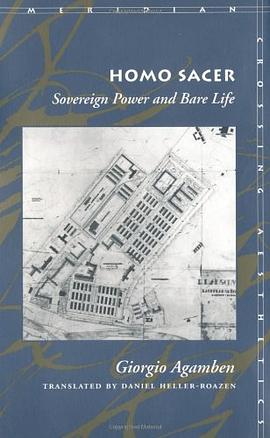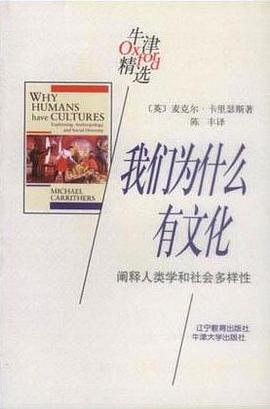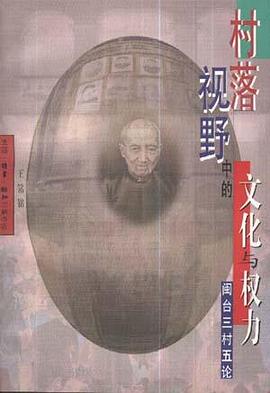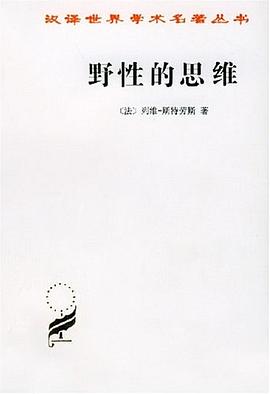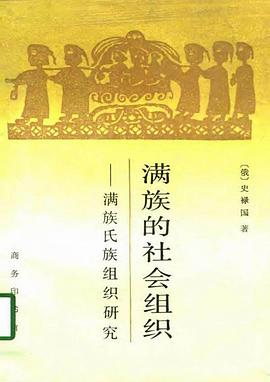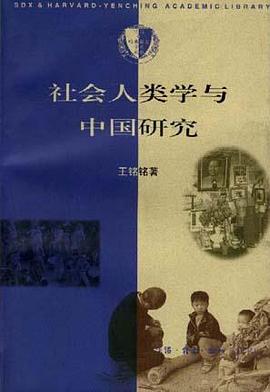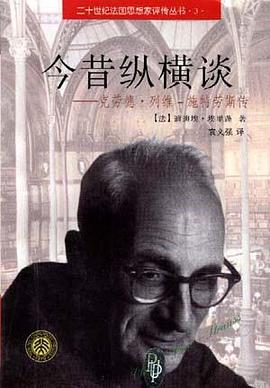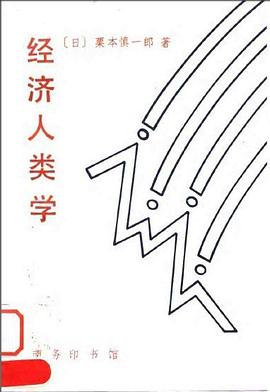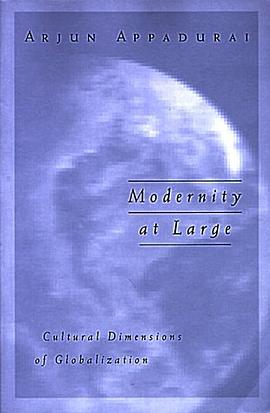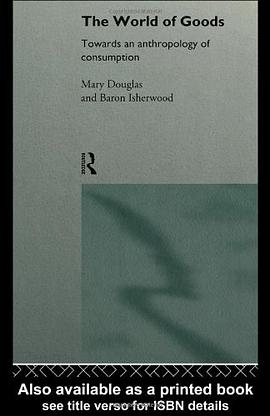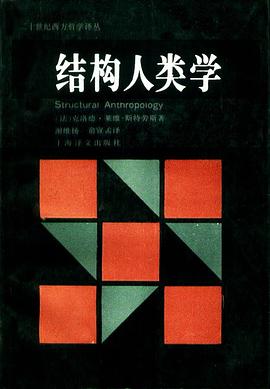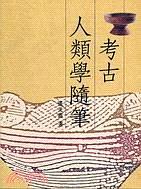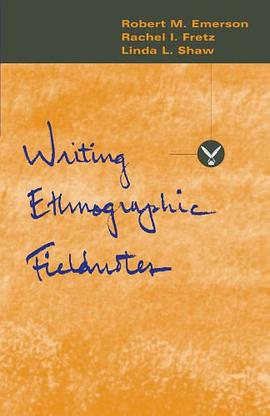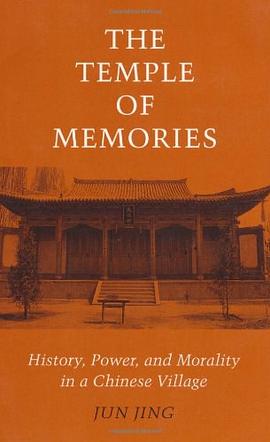

具体描述
This study focuses on the politics of memory in the village of Dachuan in northwest China, in which 85 percent of the villagers are sur named Kong and believe themselves to be descendants of Confucius. It recounts both how this proud community was subjected to intense suffering during the Maoist era, culminating in its forcible resettlement in December 1960 to make way for the construction of a major hydroelectric dam, and how the village eventually sought recovery through the commemoration of that suffering and the revival of a redefined religion.
Before 1949, the Kongs had dominated their area because of their political influence, wealth, and, above all, their identification with Confucius, whose precepts underlay so much of the Chinese ethical and political tradition. After the Communists came to power in 1949, these people, as a literal embodiment of the Confucian heritage, became prime targets for Maoist political campaigns attacking the traditional order, from land reform to the “Criticize Confucius” movement. Many villagers were arrested, three were beheaded, and others died in labor camps. When the villagers were forced to hastily abandon their homes and the village temple, they had time to disinter only the bones of their closest family members; the tombs of earlier generations were destroyed by construction workers for the dam.
---------------------------------------------------------------------------------------------
Review
"One of the best local ethnographies to date on post-reform China. . . . Conceptually sophisticated yet undiminished by unnecessary jargon, the book provides one of the most readable and intelligently framed accounts of change and continuity at the local level in China." —Journal of Asian Studies
"Anthropologists and historians will find themselves rewarded by this nuanced examination of social memory, ritual life, and the traumatic recent history of a remarkable village."—China Review International
"This gem of a book takes the study of Chinese village culture to new levels of theoretical sophistication, ethnographic nuance and literary evocativeness. . . . There are many fine books that tell similar stories of the devastation of rural communities during the Maoist era. Dachuan is different only in that the depth of its tragedy was several degrees worse than most. But what makes Jun Jing's book unique is his discovery of a way to probe the meaning of such a history for the villagers."—China Quarterly
"All audiences can enjoy the universal subjects of the book—children and food. . . . Feeding China's Little Emperor's is useful both for anthropologists or those looking at social change over the last few decades."—The China Business Review
"In 1961 the entire village of Dachuan was destroyed when it was submerged under a reservoir created by a newly constructed hydroelectric dam. . . . In Jun Jing's beautifully written account, The Temple of Memories, he reveals how the villagers tra
作者简介
Jun Jing is Assistant Professor of Anthropology at the City University of New York.
目录信息
2. Memory of Historical Possibilities
3. Memory of Revolutionary Terror
4. Memory of Communal Terror
5. Memory of Local Animosity
6. Memory of Ritual Language
7. Memory of Genealogical Retainers
8. Memory of Cultural Symbols
9. Finding Memories in Gansu
Notes
References
Character List
Index
· · · · · · (收起)
读后感
遵循近代美国实用主义思潮,没有调查就没有发言权,没有数据就没有说服力,于是,用实践检验真理,用数据说话就理所当然了。这在本书体会的淋漓尽致,据此,作者表现了一个学者应有的姿态。 只是,事实真的如此?作者提出一个社会记忆的理论,并因此进行考察、分析、证明、得出...
评分在一个文化中成长,人们需要用自己的身体和语言重复呈现仪式行为的恰当模式。学习的结果是"习惯性记忆"。坎纳顿指出:在习惯性记忆中,过去积淀在身体中。但倘若对仪式的记忆减弱或全部丧失了,必须在宗教生活的结构中重新学习仪式。但如果宗教组织都被摧毁,重新学习的过程就...
评分本书的英文版出版于1996年,距今已二十余年。在这二十余年间,无论是作为整体的中国还是作为个体的大川村,都发生了翻天覆地且意想不到的变化。当年重建孔庙的人们大概会有依托孔庙提高村落名望的考虑,但那并非他们当时最重要的目的。而现在,情况完全不同了。 笔者通过检索近...
评分 评分很奇怪为什么该书的中文版不能出版,“反动”?呵呵,政治人类学的一本佳作,还好有景军自己提供的中文版可以阅读。 该书给我最大的教益主要有两点,当然对于人类学专业人士而言或许更多,对我所研究的领域而言则集中在仪式和记忆上。 1,景军注意到了仪式在社会转型和意识形态...
用户评价
《The Temple of Memories》这本书,在我阅读过的众多作品中,可以说是独树一帜的。它并非以激烈的冲突或惊险的情节取胜,而是以其沉静、内敛,却又极具穿透力的文字,直击读者内心最深处。作者的文字,仿佛有一种魔力,能够将那些抽象的情感,那些易逝的瞬间,凝固成永恒的画面,让我仿佛亲身经历了一切。书中所探讨的“记忆”,并非简单的线性回顾,而是一种充满哲学意味的探索。它让我思考,记忆是如何被塑造的,又是如何影响着我们的现在和未来。书中的角色,他们的人生轨迹,他们的选择与被选择,都让我深思。我能感受到他们内心的挣扎,也能理解他们做出决定的原因。这种深刻的人物刻画,让我在阅读过程中,不断地与书中的人物进行对话,思考他们的人生,也反思我自己的人生。最让我着迷的是,作者在描绘那些宏大的历史背景时,总能巧妙地将其与个体命运紧密相连,让读者在感受历史的厚重感的同时,也能体会到个体在历史洪流中的渺小与伟大。这本书,就像是一面镜子,它照出了我内心的深处,也让我对“记忆”有了更深层次的理解。
评分《The Temple of Memories》是一本让我无法轻易放下,并且在读完之后依然在脑海中挥之不去的作品。它之所以如此与众不同,在于作者对于“叙事”这个概念的重新定义。这本书仿佛是一座巨大的迷宫,每一个故事线索都通往不同的房间,而每一个房间又都藏着更多的秘密。我被这种层层递进的探索感所深深吸引,仿佛在追寻一个古老而重要的真相。作者在构建这个复杂的故事网络时,展现出了非凡的叙事技巧,他能够巧妙地在不同的叙事层次之间切换,让读者在保持好奇心的同时,也能对故事的整体脉络有一个清晰的认知。书中的人物塑造更是让我赞叹不已,他们并非脸谱化的角色,而是具有丰富内心世界和复杂动机的个体。我能够理解他们的选择,也能够感受到他们的挣扎,这种深度的共情让我与书中的人物产生了一种超越时空的连接。最令我印象深刻的是,作者在处理那些沉重而又深刻的主题时,并没有流于说教,而是通过生动的故事和富有张力的描写,让读者自己去体会、去感悟。阅读这本书,就像是在进行一场深度的心灵对话,它挑战我的思维,也拓展我的视野,让我对“记忆”这一主题有了全新的理解。
评分我对《The Temple of Memories》的喜爱,源于它所营造的那种独特而深邃的氛围。从第一页开始,我就被一种难以言喻的古老气息所包围,仿佛置身于一个被时间遗忘的角落。作者的文字具有一种魔力,它能够将抽象的概念具象化,将遥远的时间拉近,让读者能够真切地感受到那些早已消逝的岁月所留下的痕迹。书中对“记忆”的探讨,并非仅仅停留在个人情感层面,而是将其上升到了对历史、对文化、对人类集体意识的思考。它让我明白,记忆不仅仅是我们脑海中存储的信息,更是我们赖以生存的根基,是我们理解自身、理解世界的重要途径。我特别喜欢书中那些充满象征意义的描写,每一个场景、每一个道具、甚至每一个人物的动作,都仿佛蕴含着更深层的含义,等待着读者去挖掘和解读。这种解读的过程本身,就成了一种充满乐趣的探险。我发现,当我越深入阅读,就越会被书中的世界所吸引,越是渴望去揭示那些隐藏在表象之下的真相。这本书让我看到了文学的无限可能,它能够超越故事本身,成为一种引导人进行自我反思和精神探索的载体。我至今仍然沉浸在它的余韵之中,不断地回味其中的每一个细节,试图从中汲取更多的智慧和力量。
评分我之所以对《The Temple of Memories》这本书如此着迷,是因为它所构建的世界观是如此的庞大而又精妙,并且它对“记忆”这个概念的探讨,更是达到了一个前所未有的高度。作者的叙事手法,如同一个经验丰富的建筑师,将无数个细小的故事碎片,巧妙地搭建成一座宏伟的记忆殿堂。我被书中那些关于古老仪式、失落语言的描写所吸引,它们为整个故事增添了浓厚的神秘色彩。我仿佛能够听到那些久远年代的回响,感受到那些消逝文明的脉搏。书中的人物,他们并非脸谱化的英雄或反派,而是具有复杂情感和多重动机的个体。我能理解他们的困境,也能体会他们的渴望。这种对人性的深刻洞察,让我在阅读过程中,不断地反思和学习。最令我印象深刻的是,作者在处理那些沉重而又深刻的主题时,并没有流于悲观,而是通过对希望的描绘,以及对勇气和坚韧的赞颂,传递出一种积极向上的力量。阅读这本书,就像是在进行一场心灵的冒险,它挑战我的认知,也拓展我的视野,让我对“记忆”这一概念有了更全面、更深刻的理解。
评分我最近读完了一本名为《The Temple of Memories》的书,它给我的感触实在太深了,久久无法平息。一开始,我被这个充满神秘感的名字吸引,想象着书中一定隐藏着许多古老而珍贵的记忆,也许是关于历史、文化,甚至是关于某个失落的文明。当我翻开第一页,便被作者精妙绝伦的文字所俘获,仿佛真的走进了一个由无数回忆构筑的宏伟殿堂。每一个场景的描绘都栩栩如生,让我能够清晰地感受到空气中弥漫的尘埃、光线在古老石柱上投下的斑驳,以及那些无声诉说着过往的壁画。书中的角色塑造更是达到了一个令人赞叹的高度,他们并非简单的故事载体,而是有着复杂的情感纠葛、深刻的内心挣扎,以及在命运的洪流中不懈抗争的灵魂。他们的成长轨迹、他们做出的选择,都让我感同身受,仿佛我也一同经历了他们的喜怒哀乐。最让我着迷的是,作者巧妙地将那些宏大的历史叙事与个体细微的情感体验融为一体,让读者在宏观的视角下,也能体会到微观世界的细腻与真实。这本书不仅仅是在讲述一个故事,它更像是在引导读者去探索自己的内心世界,去审视那些被遗忘或被忽视的记忆,去理解它们是如何塑造了今天的我们。阅读过程中,我常常会停下来,反复咀嚼作者的某些段落,思考其中的含义,那种沉浸式的阅读体验是我许久未曾有过的。它让我重新审视了“记忆”的意义,以及记忆对于一个人、一个民族、乃至一个时代所能产生的深远影响。这本书无疑是我近期阅读经历中最具启发性、最令人难忘的一部作品。
评分我对《The Temple of Memories》的评价,只能用“惊为天人”来形容。我从未读过一本能够将如此宏大的历史格局、如此细腻的个人情感、以及如此深邃的哲学思考融为一体的作品。作者的文字功底简直是炉火纯青,他能够用最简洁的语言描绘出最复杂的场景,用最平实的叙述引出最深刻的道理。我尤其欣赏书中对于“时间”的独特处理方式,它不再是单一的线性流逝,而是充满了回溯、交织与重塑。这种处理方式,恰恰是对“记忆”本质的一种完美诠释。书中的每一个章节,都像是一个独立的故事,但又都紧密地联系在一起,共同构建了一个庞大而精密的叙事网络。我常常在阅读过程中,被作者精心设计的伏笔和转折所折服,那种“原来如此”的豁然开朗,是阅读一本好书所能带来的最大乐趣之一。此外,书中对于人性复杂性的洞察更是达到了一个令人惊叹的高度。那些看似平凡的角色,却都拥有着不平凡的内心世界,他们的选择和命运,都让我深思。这本书不仅仅是一个故事,它更像是一次对人类记忆、历史传承和自我认知的深度探索,它让我重新审视了自己与过去的关系,以及记忆在我们生命中所扮演的关键角色。
评分《The Temple of Memories》这本书带给我的震撼,是一种由内而外的,层层叠叠的共鸣。我从未想过,文字的力量可以如此强大,能够轻易地穿透我固有的认知,触及我内心最柔软的地方。书中的叙事结构别具匠心,它没有采用线性叙事,而是如同解构一座宏伟的神庙,将不同的时间线、不同的视角、不同的故事碎片有机地拼接在一起,形成一个完整而又充满张力的整体。这种非线性的手法,反而更加贴合了“记忆”本身的特点——它并非总是按照逻辑顺序出现,而是常常以一种跳跃、碎片化的方式在脑海中闪现。作者在处理这种复杂结构时展现出了惊人的才华,每一个分支都引人入胜,每一个转折都恰到好处,最终汇聚成一条宏大而深刻的主线。我尤其欣赏书中对于细节的刻画,无论是对某个古老仪式庄严肃穆的描述,还是对角色在关键时刻内心情绪波动的细腻捕捉,都让我觉得身临其境。那些细枝末节,往往是构成整个故事灵魂的关键。通过这些细节,我仿佛能听到风吹过石缝的呜咽,闻到燃烧的香料的神秘气息,感受到角色心中涌动的复杂情感。这本书让我重新思考了“过去”与“现在”的关系,以及我们如何通过理解和接纳过去,来更好地面对未来。它不是一本轻松的读物,它需要读者投入时间和思考,但回报也是巨大的,它能打开你对世界和对自我的全新认知。
评分《The Temple of Memories》这本书,在我阅读过的所有作品中,都占据着一个极其特殊的位置。它的魅力不在于情节的跌宕起伏,而在于它所营造的那种深邃、宁静,却又暗流涌动的氛围。作者的笔触极为细腻,能够将那些无形的情感、那些难以捉摸的思绪,转化为具象的文字,让我能够清晰地感受到角色的内心世界。我尤其欣赏书中对于“遗忘”与“铭记”之间辩证关系的探讨。它并非简单地歌颂记忆,而是深入地剖析了遗忘的必要性,以及记忆的复杂性。书中的人物,并不是简单地在追寻失去的记忆,而是在与过去和解,在理解那些曾经的伤痛,并在记忆的碎片中找到前进的力量。这种对人性的深刻洞察,让我对书中的每一个角色都产生了强烈的共鸣。阅读这本书,就像是在经历一场漫长而又充实的冥想,它引导我审视自己的内心,去理解那些深埋的记忆是如何塑造了现在的我。作者的文字有一种治愈的力量,它能够抚平那些因时间而生的伤痕,也能够唤醒那些沉睡的勇气。这本书不仅仅是故事,它更是一种人生哲学,一种对生命意义的追寻。
评分我被《The Temple of Memories》这本书深深地吸引,其原因在于它所展现出的叙事结构的独特性和内容的深刻性。作者的写作手法极其高明,他将不同的叙事角度和时间线巧妙地交织在一起,形成了一幅宏大而复杂的画卷。我仿佛在扮演着一个考古学家的角色,在层层剥离历史的面纱,发掘那些被遗忘的真相。书中对于“记忆”的描绘,不仅仅是个人经历的回溯,更是一种对文化传承、历史印记的探索。我被那些关于古老传说、失落文明的描写所深深吸引,它们为整个故事增添了神秘而又迷人的色彩。书中的人物,并非完美无缺,他们有自己的缺点,有自己的挣扎,但正是这种不完美,让他们显得格外真实和立体。我能够感受到他们的痛苦,也能分享他们的喜悦,这种深度的共情,让我对书中的人物产生了强烈的认同感。最让我赞叹的是,作者在处理这些复杂而深刻的主题时,并没有使用晦涩的语言,而是用一种优美而富有感染力的文字,将它们娓娓道来。阅读这本书,就像是在经历一次心灵的洗礼,它让我对“记忆”有了更深刻的理解,也让我对人类历史和文明有了更广阔的视野。
评分《The Temple of Memories》这本书,在我近期阅读过的所有作品中,无疑是最具分量的。它的力量,不在于浮于表面的热闹,而在于它所蕴含的深邃思考和细腻情感。作者的文字,如同一股清泉,缓缓流淌,却能滋润心田,涤荡灵魂。我被书中对于“记忆”的独特诠释所吸引,它不仅仅是简单的信息存储,更是一种情感的载体,一种身份的认同,一种历史的传承。书中的每一个场景,都描绘得如此真实而生动,我仿佛能够闻到空气中弥漫的古老气息,感受到那些被时间尘封的故事的温度。书中的人物,他们的命运 intertwined,他们的选择与被选择,都充满了人性的复杂和无奈。我能够从他们身上看到自己的影子,也能从他们的经历中汲取力量。最让我感动的是,作者在描绘那些悲伤和失落的同时,也毫不吝啬地展现了爱与希望的光芒。这种对生命复杂性的深刻理解,让我对世界有了更深的敬意。阅读这本书,就像是一次深入灵魂的对话,它引导我审视那些被遗忘的记忆,也让我更加珍惜当下,更加勇敢地面对未来。
评分第三遍。还是觉得没完全读懂。应该是我底子不够的问题。
评分经典之一。
评分第三遍。还是觉得没完全读懂。应该是我底子不够的问题。
评分真好看啊!
评分当真共can党,力作啊
相关图书
本站所有内容均为互联网搜索引擎提供的公开搜索信息,本站不存储任何数据与内容,任何内容与数据均与本站无关,如有需要请联系相关搜索引擎包括但不限于百度,google,bing,sogou 等
© 2026 book.wenda123.org All Rights Reserved. 图书目录大全 版权所有


